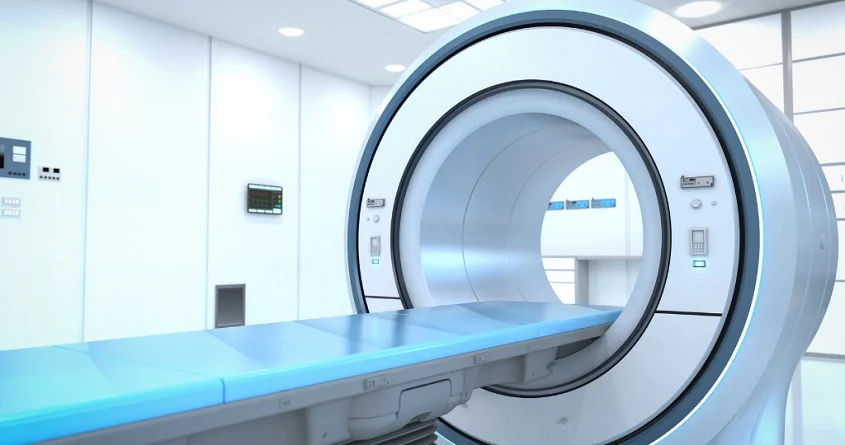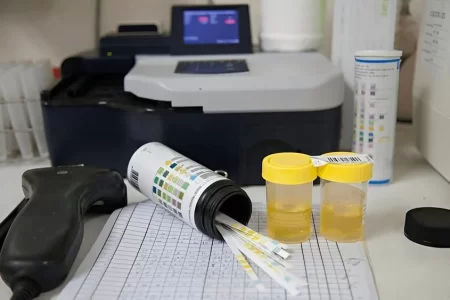An MRI (magnetic resonance imaging) scan is a common medical imaging technique that allows doctors to get a detailed view inside your body without the use of X-rays. An MRI scanner uses strong magnetic fields and radio waves to create clear and detailed images of internal organs and tissues.
When is an MRI Scan Suggested?
There are many reasons why your doctor may recommend getting an MRI scan in Hyderabad. Some of the most common reasons include:
- Evaluating pain, numbness or weakness: If you have unexplained chronic pain, numbness or weakness in a part of your body, your doctor may order an MRI to determine the underlying cause. An MRI can show soft tissue injuries, herniated discs, pinched nerves, tumours and more.
- Diagnosing multiple sclerosis: MRI scans are commonly used to help diagnose and monitor the progression of multiple sclerosis in the brain and spinal cord by detecting areas of inflammation.
- Imaging the brain and nervous system: MRIs can reveal tumours, bleeding, blood vessel diseases, brain injury from an accident, and problems related to ageing. They are more sensitive than CT scans when imaging soft tissues in the brain and spinal cord.
- Assessing joint or ligament injuries: MRI scans provide clear images of bone, soft tissue and cartilage in joints. This makes MRI an excellent way to diagnose and evaluate sports injuries, cartilage tears, tendon tears and sprains in joints like the knee, shoulder and ankle.
- Evaluating chest pain: If other tests are inconclusive for chest pain patients, an MRI cardiac stress test may be performed to gather information about blockages in the coronary arteries.
- Checking organs like the liver, kidneys and uterus: An MRI is useful for detecting cysts and tumours in abdominal organs when other imaging tests are inadequate. It is also used to evaluate causes of pelvic pain in women, such as uterine fibroids.
The MRI Procedure – What to Expect
Getting an MRI scan is generally a safe, non-invasive procedure. Here’s a quick look at what you can expect:
- No radiation exposure: Unlike X-rays and CT scans, MRIs do not use ionising radiation. This makes them a safer choice for repeated imaging tests.
- You’ll change into a hospital gown. Before entering the MRI room, as the magnets will pull on them, you must remove all metal objects, including jewellery, glasses, hairpins, cosmetics containing metal particles, and more.
- You’ll lie down on a scanner table: Depending on the part of your body being scanned, you may simply lie down on your back or stomach on a padded scanner table that slides into a tunnel inside the MRI machine. The technician may offer you blankets or cushions to help you stay comfortable.
- Earplugs to block noise: As the MRI machine cycles through the imaging sequence, it produces loud thumping sounds. You will be given foam earplugs or headphones to wear to block some of this noise.
- You must stay still: Remaining motionless during the scan is crucial for obtaining sharp, clear images. Most MRI scans take 30-60 minutes. The technician may strap you in tightly to prevent movement. You’ll be able to communicate at all times via an intercom system.
- Contrast dye may be used: A special dye (gadolinium contrast) may be injected into your vein during the test to enhance the images. Let your medical team know if you have any allergies, especially when it comes to contrast material.
- After the scan, the images will be analysed by a radiologist: A radiologist who specialises in MRI imaging will carefully study the images, write up a report, and send the findings to your referring doctor. Your doctor will then discuss the results with you in a follow-up appointment.
Why Doctors Order MRIs
There are a wide variety of reasons why your doctor may want you to undergo an MRI scan. Here are some of the most common medical situations and symptoms that prompt doctors to prescribe an MRI test:
Brain & Neurological Issues
- Headaches or migraines that are sudden, severe or long-lasting
- Dizziness, vertigo, trouble with balance, coordination or walking
- Numbness, tingling or weakness in the arms, hands, legs or face
- Memory loss, confusion, changes in behaviour or cognition
- Seizures
- Vision or hearing problems
- Pituitary gland abnormalities (seen in hormone blood tests)
Spine Problems
- Radiating pain, numbness or tingling down arms or legs
- Loss of bowel or bladder function
- Significant or worsening weakness in arms or legs
- Back pain with weight loss, fever or other concerning symptoms
Joint & Musculoskeletal Issues
- Acute knee, hip or shoulder injuries
- Unexplained arthritis symptoms
- Pain, swelling or inflammation in joints that limits mobility
- Suspected bone infection or abnormal bone growth
Abdominal & Internal Organ Issues
- Severe or recurrent abdominal pain
- Blood in vomit, urine or stool
- Pancreatic abnormalities (seen in blood tests or CT scan)
- Abnormal uterine bleeding, pelvic pain or trouble conceiving
Cancer Screening & Monitoring
- Initial staging or monitoring response to cancer treatments
- Follow up testing when lab work or symptoms suggest potential cancer
- Surveillance screening for individuals with elevated cancer risks
Is an MRI Safe?
MRI scans are very safe for most people. The strong magnetic field used will not harm you. However, magnets may affect medical devices in your body and cause problems. There is a slight chance you could have an allergic reaction to the contrast material sometimes used. This is usually mild.
Pregnant women typically only get an MRI with contrast if necessary. This is because the effects on unborn babies are unknown. As long as safety rules are followed, MRI scans pose little risk for the average person and are considered a very safe procedure.
The Bottom Line
Understanding why your physician has ordered an MRI for diagnostic purposes or as part of specialised treatment monitoring can help you feel at ease and effectively partner in your care. As a highly detailed imaging test that does not expose patients to radiation, MRIs will continue to be a go-to tool for detecting and managing complex health conditions.







